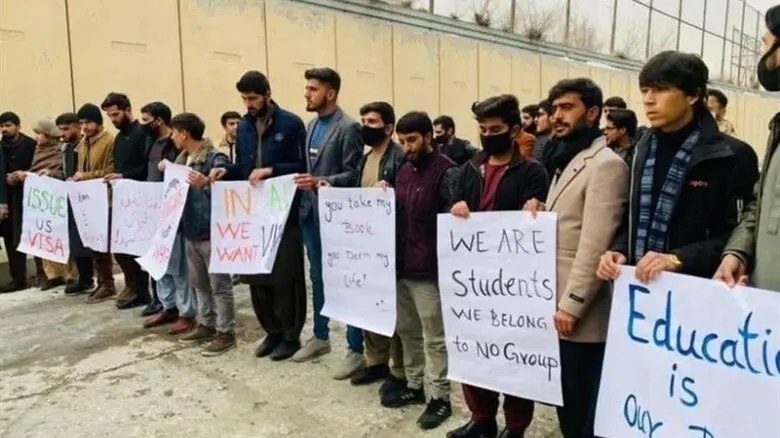RASC News Agency: Afghanistani migrants and students in India report a substantial shift in New Delhi’s stance toward them since the Taliban’s ascent to power in Afghanistan. Afghanistani students in India now face more stringent requirements and increased scrutiny when renewing their residency permits. Indian authorities are demanding additional documentation, and one student described the process as more “akin to interrogation than a routine procedure.”
According to United Nations data from January 2022, around 46,000 Afghanistani refugees were living in India. The UN Refugee Agency reported last year that this number has since declined to approximately 15,000, as many sought refuge in Western countries following the Taliban’s takeover. Afghanistani refugees in Delhi have noted that pressure on Afghanistani migrants intensified in the year following the Taliban’s rise to power. While they observe that these restrictions have eased somewhat recently, the environment remains challenging.
In particular, dozens of Afghanistani military students sent to India by the previous Afghanistani government now face uncertain futures. Some report that, months after the Taliban took control, they continue to struggle with expired visas and financial hardship. The Taliban’s Ministry of Defense has stated that some of these students have returned to Afghanistan.
Currently, many Afghanistani students in India have completed their studies but remain in limbo, as New Delhi declines to extend their visas. Barred from employment, they are facing growing economic challenges. Initially, many viewed India as a strategic ally of the Afghanistani people. However, as India has increased its interactions with the Taliban, some now perceive this as an opportunistic move, aimed at counterbalancing Pakistan’s influence and potentially compromising its national security through indirect channels.






